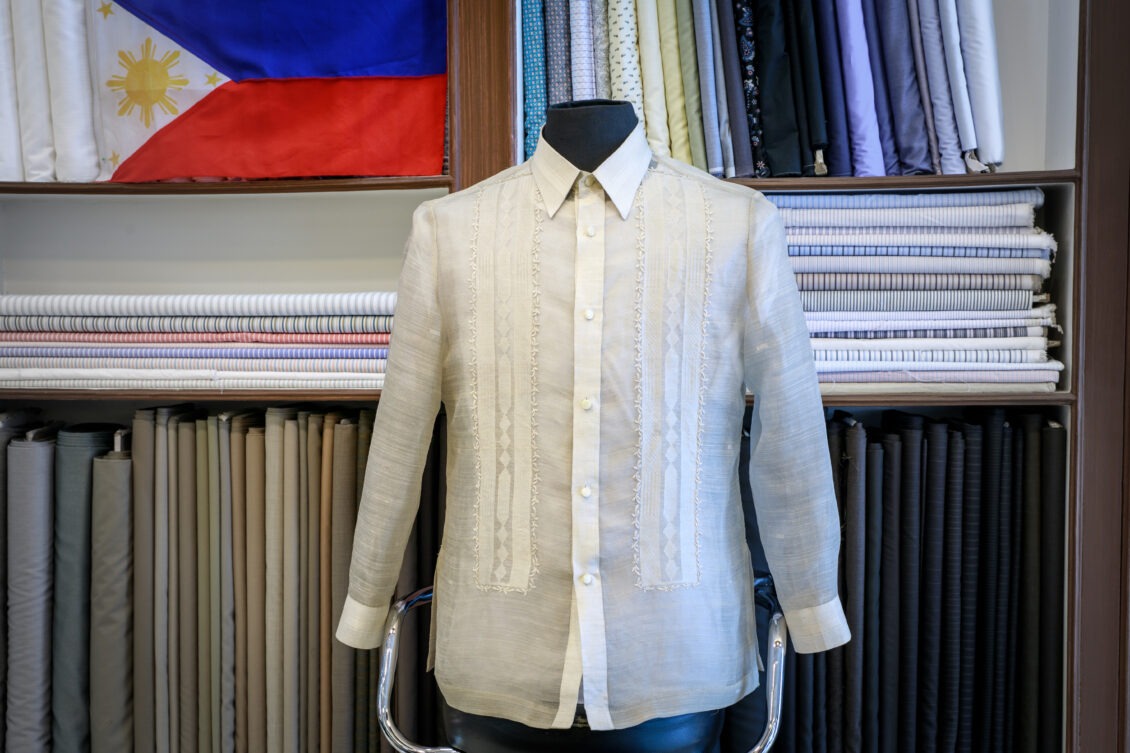Category: Filipino Culture
Explore the Vibrant Tapestry of Filipino Culture – Immerse yourself in the rich heritage of the Philippines with our captivating blog posts. Discover the fascinating traditions, artistry, and stories behind Barong Tagalogs, Filipinianas, and other exquisite handmade Filipino goods. Join us as we celebrate the essence of Filipino identity and traditions, and embark on a journey of cultural appreciation and craftsmanship.
Indulge in a diverse collection of articles that delve into the historical significance of traditional Filipino clothing, such as the iconic Barong Tagalog, a symbol of elegance and national pride. Dive into the world of Filipinianas, exploring their timeless appeal and their role in showcasing Filipino aesthetics and femininity.
Beyond clothing, our blog unravels the stories behind handmade Filipino goods, crafted with passion and skill, reflecting the nation’s artistic ingenuity. From intricately designed crafts to authentic culinary delights, we explore the soulful expressions of Filipino craftsmanship and creativity.
Enrich your understanding of Philippine festivals, rituals, and customs, as we bring you closer to the heart of Filipino celebrations and cultural practices. Through vibrant imagery and compelling narratives, we aim to foster an appreciation for the beauty and diversity that define the Filipino way of life.
Our blog isn’t just about showcasing traditions; it’s also about engaging with the vibrant present and future of Filipino culture. We celebrate contemporary Filipino artists, musicians, and influencers who are shaping the cultural landscape, melding heritage with modernity.
Whether you’re a Filipino eager to reconnect with your roots or an enthusiast of diverse cultures, our ‘Filipino Culture’ blog category offers a gateway to immerse yourself in the enchanting and ever-evolving world of Philippine heritage. Discover the depth and richness of Filipino identity through our curated content, and join us on this inspiring journey of exploration and cultural exchange.
Barong Tagalog for Men: Embracing Time-Honored Traditions
Barong Tagalog for Men: A Journey Through Time-Honored Traditions
Embrace the heritage and pride of the Philippines with the Barong Tagalog for men. This iconic garment is more than clothing; it’s a symbol of tradition. Over generations, this timeless attire has been a cornerstone of Filipino customs. Join us as we explore the world of Barong Tagalog traditions and the profound cultural significance they hold.
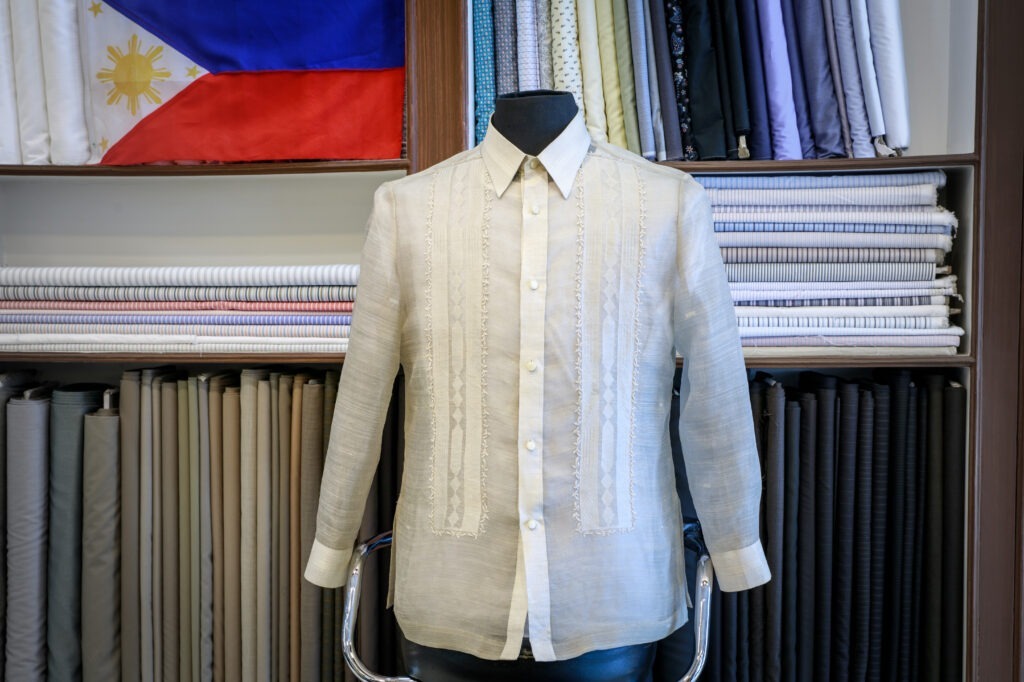
Weddings: Elevating Barong Tagalog Beside the Bride’s Gown
In the realm of Filipino weddings, the Barong Tagalog for men takes a prominent role alongside the bride’s gown. As a symbol of elegance and formality, it’s often the groom’s attire of choice. Its intricate embroidery and impeccable craftsmanship complement the bride’s gown, creating a harmonious ensemble that signifies unity and shared heritage. The Barong Tagalog signifies the groom’s embrace of Filipino culture as he embarks on a new chapter of life.
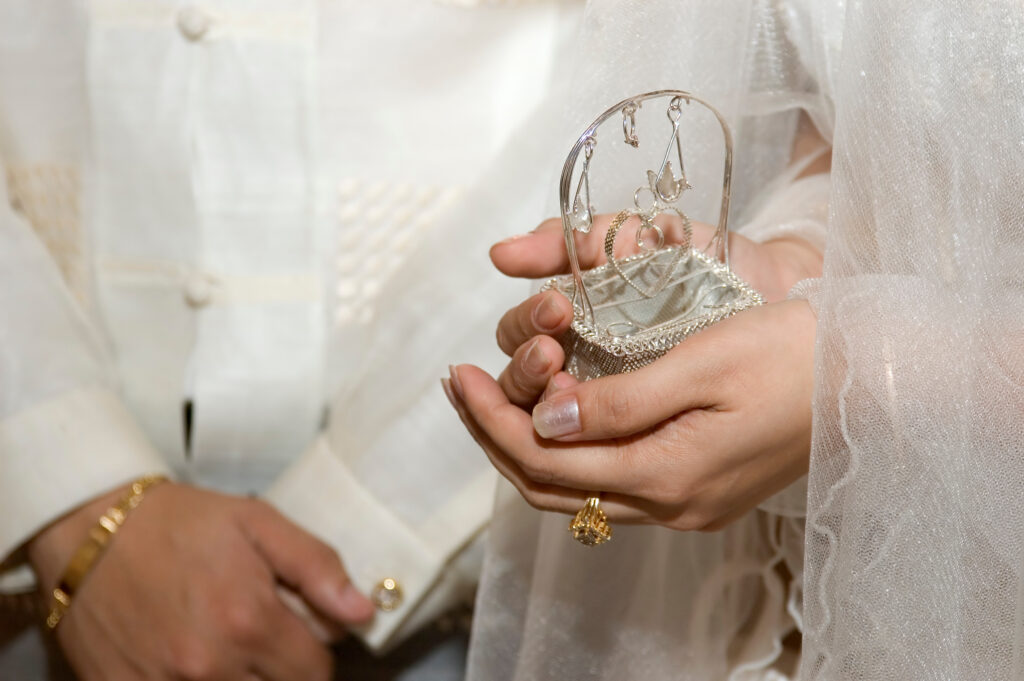
Cultural Festivals: A Canvas of Heritage
Within vibrant cultural festivals and traditional celebrations, the Barong Tagalog shines as a beacon of Filipino identity and artistic expression. Its intricate designs and opulent fabrics mirror each region’s unique heritage and customs. From the elaborate Piña Barongs that grace Visayan festivals to the Jusi Barongs adorned with intricate motifs during local fiestas, the Barong Tagalog paints a vivid picture of Filipino diversity and innovation. These festivals serve as platforms for skilled artisans to showcase their talents, ensuring the art of crafting Barongs endures across generations.
Government and Formal Events: A Mark of Respect
The Barong Tagalog for men stands as the Philippines’ national formal attire, often worn by government officials during official functions and formal events. Its significance extends beyond fashion; it’s a symbol of respect for Filipino traditions and culture. During national holidays, ceremonies, and state visits, the Barong Tagalog becomes an emblem of the nation’s identity, inspiring unity and pride among Filipinos.
Family Celebrations: Passing Down a Legacy
Barong Tagalog traditions are cherished not only during significant events but also within families. Fathers commonly pass down their Barongs to their sons, fostering a sentimental connection to the past and ensuring continuity. Family gatherings and special occasions offer opportunities for the younger generation to wear their heritage with pride, paying homage to their ancestors and carrying forward an enduring legacy.
Barong Tagalog as a Gift: An Emblem of Affection
Gifting a Barong Tagalog is a gesture of love and appreciation. During milestone events like birthdays, graduations, or anniversaries, loved ones often present Barongs to express their affection. Giving a Barong Tagalog signifies a desire to share Filipino heritage and culture, forging a meaningful bond that transcends generations.

Conclusion: The Enduring Allure of Barong Tagalog Traditions
Our journey through Barong Tagalog traditions reveals a vibrant and enduring cultural heritage. This beloved Filipino attire captivates hearts not only for its beauty and grace but also for the customs it represents.
Whether adorning weddings, festivals, formal gatherings, or intimate family moments, the Barong Tagalog for men serves as a conduit, connecting Filipinos to their shared history and the promise of a dynamic future. It remains a reminder of the importance of safeguarding cultural traditions and nurturing pride in one’s ancestry.
As the Barong Tagalog maintains its position in Filipino life, it weaves itself into the fabric of Filipino identity—a timeless tradition that resonates within the proud hearts of a nation.
Barong Tagalog as a Gift
Elegance Unwrapped: The Timeless of Giving a Barong Tagalog as a Gift
When it comes to finding the perfect gift that embodies sophistication, cultural pride, and enduring elegance, look no further than the Barong Tagalog. This traditional Filipino garment transcends fashion trends, making it a timeless present that captures the heart of both the giver and the receiver. Whether it’s for a special occasion or a token of appreciation, gifting a Barong Tagalog is a gesture that will be cherished for a lifetime. Let’s unwrap the beauty and significance of giving a Barong Tagalog as a gift.

A Symbol of Cultural Heritage
Gifting a Barong Tagalog is more than just presenting a piece of clothing; it is bestowing the essence of Filipino cultural heritage upon someone special. Whether the recipient is Filipino or not, the Barong Tagalog serves as a reminder of the rich traditions, artistry, and values that define the Philippines. The gift becomes a bridge that connects the recipient to the timeless elegance of Filipino culture.
Thoughtful and Personalized Barong Tagalog as a Gift
Choosing a gift that is thoughtful and meaningful can be a challenge, but a Barong Tagalog is a gift that radiates thoughtfulness and personalization. With a wide range of designs, fabrics, and styles available, you can select a Barong Tagalog that perfectly suits the recipient’s taste and personality. Whether they prefer classic embroidery, modern embellishments, or a particular fabric like piña or jusi, there’s a Barong Tagalog that reflects their individuality.

Perfect for Special Occasions
Barong Tagalogs are the epitome of elegance, making them an ideal gift for special occasions and milestone events. From weddings and anniversaries to birthdays and graduations, a Barong Tagalog adds an element of grace and sophistication to these memorable moments. Presenting the gift of a Barong Tagalog during significant life events symbolizes a desire to share in the joy and honor the importance of the occasion.
Creating Lasting Memories with the Barong Tagalog as a Gift
The beauty of gifting a Barong Tagalog lies not only in the present moment but in the lasting memories it creates. Every time the recipient wears the Barong Tagalog, they will be reminded of the occasion and the person who bestowed this cherished gift. The Barong Tagalog becomes a keepsake, passed down through generations, carrying with it the sentiment and love of the giver.
Strengthening Bonds
Gifting a Barong Tagalog is a gesture that goes beyond the material item; it strengthens bonds and fosters connections. For couples, exchanging matching Barongs can be a symbol of unity and commitment. For families, gifting Barongs to sons, brothers, or nephews during significant life events reinforces the ties that bind them together. The Barong Tagalog becomes a thread that weaves connections and strengthens relationships.
Spreading Cultural Appreciation
When you give a Barong Tagalog as a gift, you are not only presenting an elegant garment but also spreading cultural appreciation and understanding. The recipient may not have been familiar with Filipino culture before, but through this gift, they get a glimpse of the richness and beauty that the Philippines has to offer.
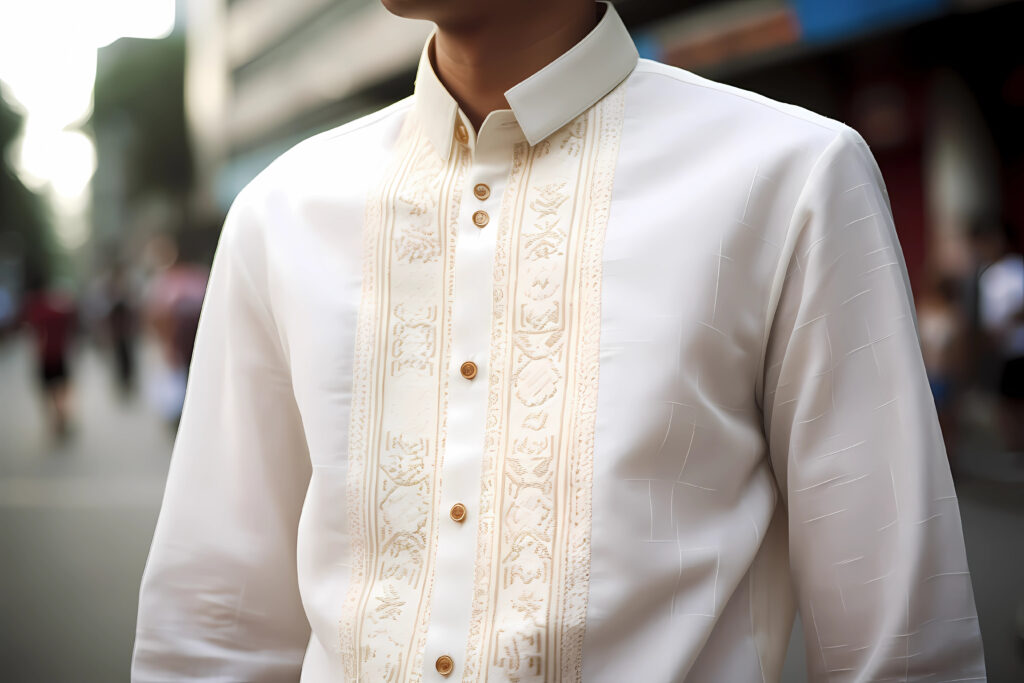
Conclusion: A Gift Beyond Compare
Gifting a Barong Tagalog is a gesture that transcends borders and generations. It is a timeless treasure that embodies elegance, tradition, and the enduring spirit of Filipino culture. From special occasions to intimate celebrations, the Barong Tagalog stands as a symbol of cultural heritage, love, and thoughtfulness.
As you bestow the gift of a Barong Tagalog, you are not merely presenting a garment; you are offering a piece of history and tradition. In the unwrapping of the Barong Tagalog, the recipient discovers a gift that is beyond compare – an embodiment of grace and an enduring connection to the captivating elegance of the Philippines.
Barong Tagalog History
Barong Tagalog: Unraveling the Timeless Threads of Filipino Heritage
Here’s some Barong Tagalog history: The Barong Tagalog, with its intricate embroidery and graceful design, is not just a garment; it is a symbol of Filipino identity and cultural pride. This iconic traditional attire has a rich history that dates back centuries, weaving together tales of heritage, artistry, and national unity.
Origins of the Barong Tagalog
The origins of the Barong Tagalog can be traced back to the pre-colonial era of the Philippines. Early Filipinos, long before the arrival of foreign influences, donned loose-fitting, translucent shirts made from indigenous materials such as pineapple and abaca fibers. These light and breathable garments were well-suited to the country’s tropical climate, reflecting the ingenuity of the Filipino people in adapting clothing to their surroundings.
Influence of Spanish Colonization
The Barong Tagalog, as we know it today, bears the mark of Spanish colonization. During the Spanish colonial period (16th to 19th century), the traditional Filipino attire underwent significant changes. The Spaniards introduced European fashion elements, and the once-sleeveless Barong gained long sleeves and a button-down front. The intricate embroidery work, inspired by Spanish lace and drawn threadwork, became a prominent feature of the Barong Tagalog, adding an exquisite touch to the garment.

National Symbol and Formal Attire
As the Philippines struggled for independence, the Barong Tagalog emerged as a potent symbol of Filipino resistance and identity. During the revolutionary period against Spanish rule and later against American colonization, the Barong was worn with pride by national heroes and freedom fighters. After gaining independence in 1946, the Philippine government declared the Barong Tagalog as the national formal attire for men, cementing its significance in the country’s history and culture.
Barong Tagalog in Modern Times
Despite the changing fashion landscape, the Barong Tagalog has endured the test of time and continues to be an integral part of Filipino culture and celebrations. From weddings and formal events to national holidays and traditional ceremonies, the Barong Tagalog remains a symbol of elegance and cultural heritage. Moreover, with the rise of “Barong Fridays” and a resurgence of national pride, more Filipinos are embracing this traditional attire in everyday wear, further preserving its legacy for future generations.
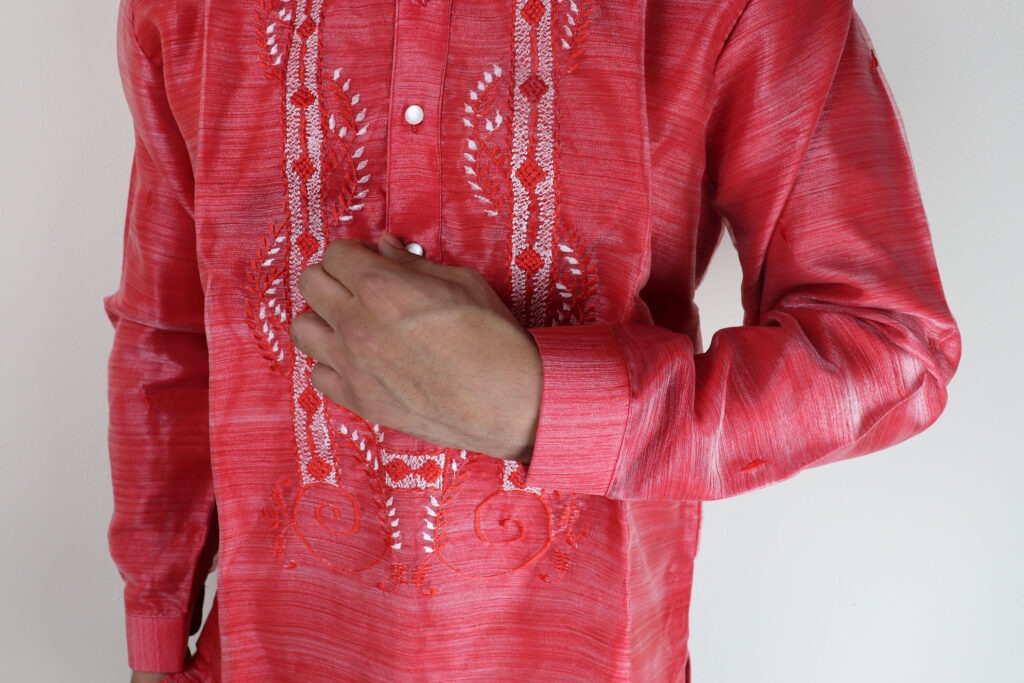
Craftsmanship and Artistry
At the heart of the Barong Tagalog‘s allure lies the exceptional craftsmanship and artistry of Filipino weavers and embroiderers. Skilled artisans painstakingly create delicate patterns and designs, infusing each Barong with a unique story and artistic expression. This dedication to craftsmanship has made the Barong Tagalog not just a piece of clothing but a work of art that represents the soul of Filipino culture. These delicate pieces of clothing need special care for your Barong Tagalog.

Conclusion: Embracing the Barong Tagalog Legacy
The Barong Tagalog stands as a timeless masterpiece that encapsulates the beauty of Filipino culture and history. From its humble origins in pre-colonial times to its present-day prominence as a national symbol, the Barong Tagalog remains a testament to the resilience and creativity of the Filipino people.
As we don the Barong Tagalog with pride and admiration, let us remember the centuries of history and artistry woven into its fibers. Embracing this iconic garment is not just a fashion choice; it is a celebration of our shared heritage and a commitment to preserving the cultural legacy for generations to come. The Barong Tagalog continues to be a shining beacon of Filipino identity, connecting us to our roots and uniting us as one nation with a rich and vibrant history.
Filipino Funeral Attire & Filipino Funeral Gifts
A Farewell with Grace: Filipino Funerals and the Symbolic Barongs
In the Philippines, funerals are not just somber occasions; they are a heartfelt tribute to the departed and a celebration of a life well lived. Amidst the mourning and grief, a sense of cultural pride and unity envelops these solemn events. At Filipino funerals, the traditional Barong Tagalog takes on a poignant role, symbolizing respect, dignity, and a final farewell with grace. Let’s explore the significance of Filipino funerals and the elegant presence of Barongs during these meaningful ceremonies.

Filipino Funeral Traditions: Embracing Respect and Unity
Filipino funerals are deeply rooted in cultural traditions that reflect the nation’s values of respect and unity. The grieving process is a collective affair, with friends, family, and community members coming together to offer condolences and support to the bereaved family. In the face of loss, Filipino funerals serve as a reminder of the strength of familial bonds and the resilience of the human spirit.
The Significance of Barong Tagalogs at Filipino Funerals
During Filipino funerals, Barong Tagalogs, typically either the classic white or black, play a significant role in honoring the departed and the mourning process. The elegant and dignified appearance of black Barongs symbolizes respect for the deceased and their family. Wearing Barongs demonstrates an acknowledgment of the solemnity of the occasion and the desire to pay tribute to the life that has passed.
Barong Tagalog Colors: A Display of Mourning at Filipino Funerals
In Filipino culture, white is the color associated with purity. Black barong is the color associated with mourning. During funerals, the Barong Tagalog worn by close family members, such as sons, brothers, and nephews, is often white or a subdued color to signify purity or black for mourning. The use of white Barongs exemplifies a sense of solemnity and reverence, honoring the memory of the departed.
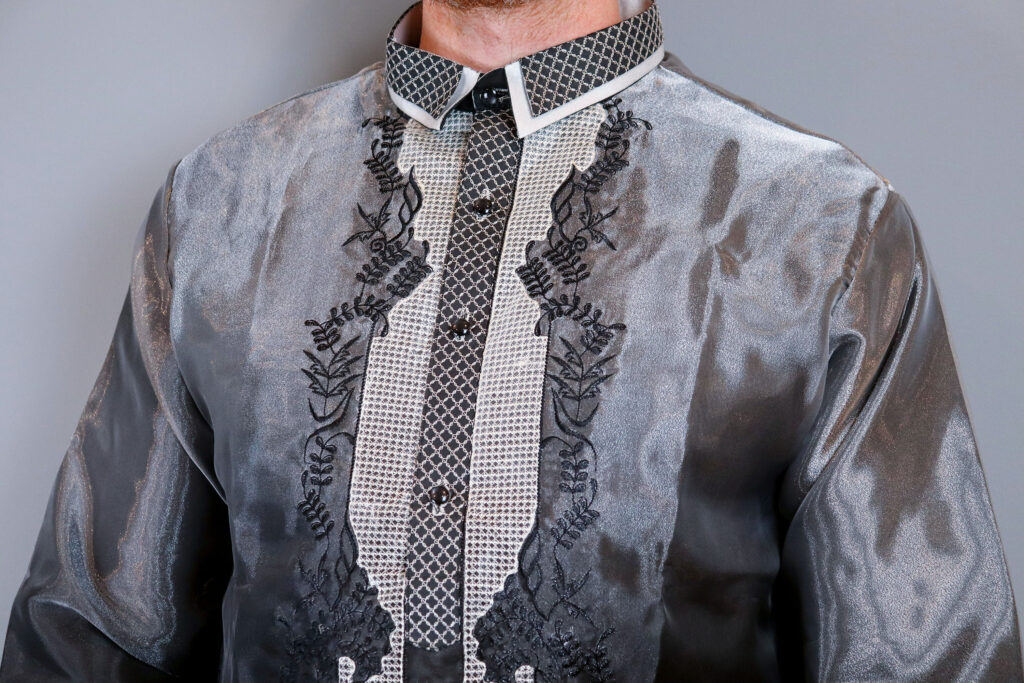
Filipino Funeral Gifts
When attending a Filipino funeral, it is customary to bring gifts that show support and sympathy for the grieving family. Common gifts include flowers, often white, symbolizing purity and respect. Monetary contributions, known as “abuloy,” are also a significant tradition, helping with funeral expenses and showing communal solidarity. Additionally, food is frequently given, easing the family’s burden during their time of grief. These gestures embody the deep sense of community and compassion characteristic of Filipino culture.
Paying Final Respects with Elegance at Filipino Funerals
As the funeral service proceeds, the elegant Barong Tagalogs worn by family members add a touch of grace and dignity to the proceedings. The attire signifies that, even in the face of sorrow, the Filipino spirit remains resilient and dignified. It is a testament to the enduring cultural pride that persists through times of grief.

Community Support and Unity
Throughout the funeral, the presence of the community and extended family offers comfort to the bereaved. The Barong Tagalogs worn by attendees foster a sense of unity, creating a visual reminder of shared cultural heritage and the collective mourning for the departed.
A Celebration of Life and Legacy
Filipino funerals are not solely a time for mourning; they are also an opportunity to celebrate the life and legacy of the departed. Through stories, eulogies, and shared memories, loved ones find solace in honoring the impact of the deceased on their lives. The elegance of Barongs adds a touch of grace to this celebration of a life well-lived.

Conclusion: The Last Goodbye with Dignity
Filipino funerals, with the dignified presence of Barong Tagalogs, are a poignant reminder of the significance of cultural traditions during times of grief. These ceremonies reflect the profound respect and unity that characterize Filipino communities. Find out more on this blog about Filipino funeral traditions.

As the Barong Tagalog elegantly graces the final farewell, it symbolizes the enduring legacy of the departed and the spirit of resilience that unites the Filipino people. Funerals in the Philippines are not just a time of mourning; they are a testament to the strength of cultural heritage and the profound sense of respect that defines Filipino tradition.
Filipino Baptisms
Filipino Baptisms and the Graceful Presence of Barongs: A Sacred Rite of Passage
In the Philippines, baptisms are joyous celebrations, marking a child’s spiritual journey into Christian faith. Surrounded by love and cherished traditions, they forge lasting bonds, embracing family and culture. Enveloped in family warmth and Barong Tagalogs’ elegance, Filipino baptisms epitomize tradition and devotion. Let’s explore their significance.
Embracing Faith and Community Around Filipino Baptisms
Filipino baptisms hold a special place in the hearts of Filipino families. Beyond the religious significance, they symbolize a strong sense of community and familial bonds. As family and friends gather to witness this sacred event of a Filipino baptism, they come together in support and love, creating an atmosphere of joy and unity.

The Role of Godparents in Baptisms
Godparents, known as “ninong” (male) and “ninang” (female), play a pivotal role in Filipino baptisms. They are chosen by the child’s parents to provide spiritual guidance and support throughout the child’s life. The Godparents’ commitment to their role is a testament to the close-knit relationships within Filipino families and communities.
Baptismal Attire: The Elegance of Barong Tagalogs
In Filipino baptisms, the attire of choice for young boys is the elegant Barong Tagalog. These finely crafted garments, often made from piña, jusi, or other delicate fabrics, embody the essence of Filipino elegance. Worn by the child, parents, and Godparents alike, the Barong Tagalog assumes a role of profound symbolism during this sacred occasion, signifying purity and reverence. With its immaculate design and graceful fabric, the Barong Tagalog embodies the essence of spiritual sanctity, enveloping the participants in an aura of solemnity and devotion as they come together to celebrate this cherished moment of faith and tradition.

A Ritual of Blessings and Symbolism in Filipino Baptisms
The baptismal ceremony itself is steeped in ritual and symbolism. The water used for baptism takes on a profound meaning, symbolizing purification and the cleansing of sins, while the sign of the cross gently traced on the forehead holds a sacred significance as it marks the child’s initiation into the Christian faith. These symbolic rituals not only sanctify the moment but also serve as a spiritual bridge, connecting the child to a lifelong journey of faith and devotion.Throughout the ceremony, prayers are offered, blessings bestowed, and the child is officially named, signifying their belonging to the Christian community.

Post-Baptismal Celebrations: Party Filipino Style
After the baptismal rites at the Filipino baptism, a joyful celebration ensues. Family and friends gather for a festive feast, where traditional Filipino dishes and delicacies abound. During these celebrations, the Barong Tagalogs remain a prominent sight, elegantly complementing the joyful atmosphere with their exquisite craftsmanship and traditional allure. As laughter and festivities fill the air, the graceful presence of these garments adds a touch of cultural pride and sophistication, symbolizing the cherished customs that bring families and friends together in harmonious celebration.

A Legacy of Baptism Faith and Tradition
As the child grows, the memory of their baptism remains an indelible part of their life’s journey. The Barong Tagalog worn during this sacred event becomes a cherished keepsake, lovingly passed down through generations, serving as a profound symbol of family unity and unwavering faith. This treasured garment, with its intricate embroidery and delicate fabric, not only preserves the memories of the past but also connects the threads of heritage, weaving a timeless bond that transcends time.
Conclusion: A Blessing of Love and Tradition
Filipino baptisms, adorned with the grace and elegance of Barongs, are a testimony to the profound significance of faith, family, and cultural heritage. These sacred rites of passage unite families and communities in celebration and devotion, creating a lasting bond that transcends time.
As the Barong Tagalog continues to grace the baptisms of young boys, it symbolizes not only elegance but also signifies the enduring legacy of Filipino traditions and values. Moreover, it serves as a poignant reminder of the rich cultural heritage passed down through generations, linking the past and the present in a seamless tapestry of identity and pride. Baptisms in the Philippines are not just moments of spiritual initiation; they are celebrations of love, faith, and cultural identity, beautifully woven together like the delicate threads of a Barong Tagalog, forming a timeless tapestry of Filipino heritage.
